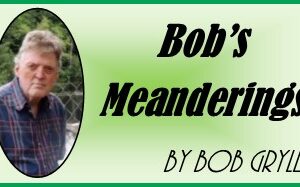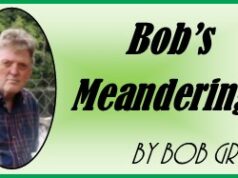Music has been shown to have the capacity to help heal mind, body and soul. Possibly
doctors could prescribe it like a drug to boost health and life span in the future?
I probably don’t listen to enough music whatever the genre to help me. But when Elvis went into hiding, I lost some enamour for Rock n’ Roll and most music in general. ‘Rap’, whatever it’s meant to be, killed most of my joy of the remaining music I sometimes listened too.
Sheila has our Wi-Fi radio in the kitchen tuned in to the same station every day but playing so low I can’t hear it well enough. When a rare song I remember plays, I turn up the volume and often do a jig to the rhythm. This infuriates Sheila and the volume is turned back down instantly. However, I take advantage when she goes shopping. I crank up the volume even flicking onto other stations …. but remembering to reset it before she returns. Or else!!
I heard that hearing is the fastest of the human senses. Sound waves can reach the brain 10 times quicker than the blink of an eye. Still, I’m always amazed how swiftly a favourite tune can transform me mentally and spiritually to another place and time. No drug can do that as far as I know. It’s side-effects too are whimsical.
Music has been known to help stroke victims regain their speech and steady the gait of someone with Parkinson’s. A little ‘ABBA’ can entice the weary to break into a dance – at least it does me. Studies show it can reduce seizures, lessen the need for painkillers and alleviate the symptoms of depression, anxiety and the fog of dementia even in the late stages.
It is still a mystery how music heals in so many ways, but increasingly it’s the subject of serious science. $20 million for research is earmarked to pinpoint music’s effects on brain circuitry, in order to treat neurological disorders and other ailments leading in improvement to one’s overall health.
It’s never too late to reap the benefits of music, which include improvements in mood, memory, and relationships.
“When you’re a kid, you don’t think about it. You sing at the top of your voice, you dance, you move,” says Chrissy Pearson, a certified music therapist with the Canadian Music Therapy Fund. “Then as we get older for some reason we don’t do it. But we’re born with the ability to be rhythmic and we are all musical.”
Studies reveal how serotonin rises significantly in response to pleasing music, and it’s much more than the happy buzz that Prozac made famous. Music is a multitasker that’s involved in learning, memory, sleeping, digestion, even bone health.
For the aging brain, music may offer a timely neurochemical cocktail: lessening memory lapses, cognitive problems and depression. Research finds intentional listening may be a boon to the body as well as the brain.
One Song Does Not Fit All: Culture, age and experience all influence musical preferences. Technology provides the opportunity to “self-medicate” with personalized music like no generation before.
We have digital technology to allow us to organize and create playlists to help people listen to music intentionally. Favourite songs are the most meaningful and each one feels like a “musical experience.” You’re never going to think of all the songs in one afternoon … in some cases, you won’t remember to include that song by Roy Orbison until you come across it later .
The key principle of clinical music therapy is that a session should always start by matching music to mood – particularly if you’re blue – and then changing the music to gradually improve an emotional state. Pearson likens it to making a workout playlist. “You’re not going to start off with a really fast song when you haven’t warmed up.”
Numerous studies have found that pleasing music can be a significant painkiller after surgery, in the ICU and in burn units. It’s thought that music distracts from pain by boosting the ability to tolerate it by the neural release of opioids, the brain’s own morphine.
I’ve unknowingly missed out on many benefits but it is never too late to start.





![Kenopic/Smith Auction [Paid Ad]](https://whitewaternews.ca/wp-content/uploads/2018/10/advertising-100x75.jpeg)

